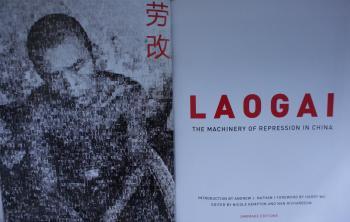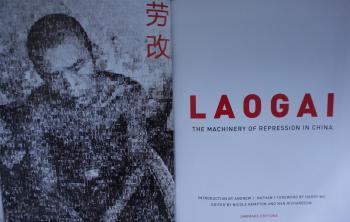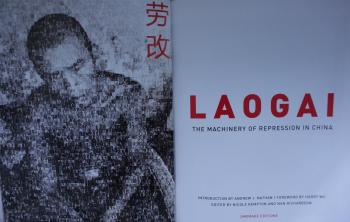NEW YORK—“I was 27 years old when I went in and 50 years old when I was let out,“ the man on the video wept. ”Those should be the best years of a person’s life. And now my sons don’t even know me,” he said as he turned from the camera to wipe his tears.
His was one of the testimonies in a short video-compilation of material from the new book, “Laogai: The Machinery of Repression in China.” Umbrage Editions, the publisher, had helped organize a speaking event at Columbia University to mark the volume’s publication, and a modest but keen audience attended.
Four speakers shared their views on human rights in China, and each took an angle: law, labor camps, media, and Tibet. The overriding theme of the discussion was the laogai—the labor camp system in China.
Laogai means “reform through labor” in Chinese, and it has a long history, according to Andrew J. Nathan, Professor of political science at Columbia University, who moderated the discussion and wrote an introduction to the book. “You could say that the history goes back to the development of modern penology, modern law, and the modern prison system in China,” he said.
China’s Labor Camps on the Agenda at Columbia University
3-5 million Chinese are currently detained in forced labor camps system, called Laogai.

Image of the new book: Laogai: The machinery of repression in China, published by Umbrage. Charlotte Cuthbertson/The Epoch Times
|Updated:
Matthew Robertson is the former China news editor for The Epoch Times. He was previously a reporter for the newspaper in Washington, D.C. In 2013 he was awarded the Society of Professional Journalists’ Sigma Delta Chi award for coverage of the Chinese regime's forced organ harvesting of prisoners of conscience.
Author’s Selected Articles






